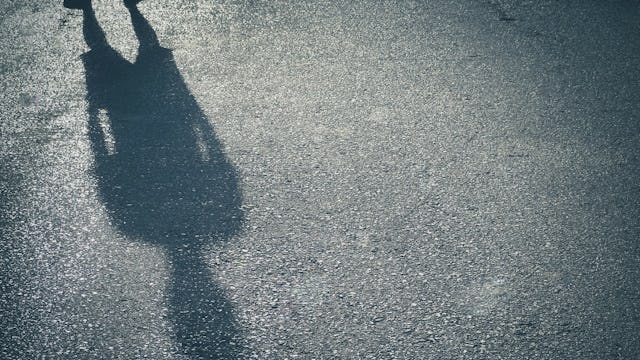My Brother Died Of An Overdose, And This What I Want People To Know

Last week, I got the call I’ve been simultaneously dreading and anticipating for more than two decades. My brother was found dead of a heroin overdose. He was 44. He died alone in his car outside a 7-11 in Colorado. I say “died” instead of “passed away.”
“Passed away” brings forth the vision of a tableau — peaceful moving from one phase of life into the next, slipping away into sunshine, clean and fragrant as a warm breeze. One does not simply pass away during a heroin overdose. It is a death no one deserves, a lonely and violent disruption of a life that should’ve been different.
My brother and I were not close as adults, and my feelings toward him were complicated, vacillating from intense love to anger to bitterness. I watched helplessly as the boy who was so full of life that he filled a room with brightness and personality turned into a man who was a captive to addiction, first to alcohol and then to cocaine and heroin.
At the time of his death, I hadn’t spoken to him in nearly three years, in large part because I didn’t know how to get ahold of him and for also self-preservation. But he consumed my thoughts with such force that it often pressed tears out of my eyes. How does a person with such potential fall so low? How did my brother, who had every advantage, end up homeless, at times incarcerated, and addicted to drugs? How did I escape the same fate? After all, we have the genetics of siblings. We grew up in the same home with the same alcoholic father, who abandoned us as teens. I have such guilt that it isn’t me, succumbed to his fate. What right do I have to live a life free of such things in a suburban bubble? How did I get lucky and he did not?
When we were kids, we played in our neighborhood, pretending to be superheroes and football stars and Masters of the Universe. We helped each other cross the treacherous creek in the woods at the end of our neighborhood, never once letting the other fall into the perilous depths rushing beneath the log bridge. I once made him wear a dress and pretend to be Laura Ingalls to my Mary during my Little House on the Prairie obsession. He cried — he didn’t want to be a boy in a dress — but he went along with it for me. A favorite game was pulling either end of my Stretch Armstrong doll, just waiting for the other to let go, sending the one who waited too long tumbling head over feet across the grass. He was an excellent athlete, good-looking, and collected friends as easily as giant snowflakes falling from the sky. Everyone fell under his spell.
A story my mother told everyone who would listen — almost as a mantra to prove to herself that her drug-addicted son could overcome all his demons — was the time when he walked forward, tugging my Pop by the hand, at a Billy Graham convention to accept the Lord into his life. “He walked forward at Billy Graham,” she said. “He walked forward.” As the years went on, her voice sometimes faltered during this story, but she remained steadfast in her support and belief that he would hear and remember and return to being that earnest boy proclaiming his faith in front of thousands.
At the lowest moments, I screamed at him just to stop. Just don’t call the drug dealer. Just don’t jab that needle into yourself. Just. Don’t. I saw it as a choice he was making, not as the all-consuming need that I now understand addiction to be. Society will see his death as just another criminal junkie gone, and good riddance. They don’t know that he was a son loved fiercely by a mother. That he made such an impression on people that they remember him 25 years after high school and seek me out to ask how he is and tell me stories of what he got up to as a kid. That the impact of his choices affected all of them, too. That he was a talented chef who once cooked for former president Barack Obama when he was chosen to cater the DNC National Convention in Denver. That when he was clean he made an indelible stamp on the world and on the hearts of everyone he touched. That he loved dogs and the wide open sky of the west. That “criminal junkie” did not define all of who he was.
And yet that part of him defined how everyone around him behaved. We loved and feared and pitied and cursed him. Breath caught in our throats every time the phone rang, waiting for news of him, good or bad. He spent as much time in rehab as he did incarcerated, and always went back, finding and using the drugs that must have, for poached moments, given him relief from the inner turmoil that ruled him and his behavior.
His death devastates me in a way I did not anticipate. I expected, when this call inevitably came, that I would react with tight-lipped stoic resignation and carry on. Instead, I curl up and weep for the loss of his life. For the loss of his talent, charisma, and my own hope that he would someday recover. May you rest in peace, my brother.